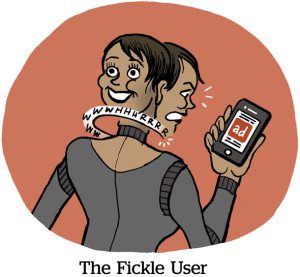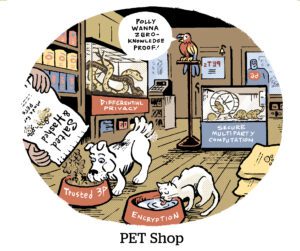Here’s today’s AdExchanger.com news round-up… Want it by email? Sign up here.
Amazon’s Personal REC
TripleLift is the first ad tech vendor to partner with Amazon’s Responsive Ecommerce Creative campaigns, Business Insider reports.
The real difference with this product is that information and imagery about the product is pulled live by API. It turns product copy and basic creative from a product catalog into native ad formats that can serve across TripleLift’s supply.
Amazon “quietly launched” RECs in December, according to BI. Although they’re pretty straightforward if you visit the product support page: “This eliminates the need to rely on creative agencies for obtaining ad components.”
It only works with the Amazon DSP, of course.
It is also a perfect demonstration of why retail media is calling out for standardization. Amazon can take a product like this and make a PR victory for independent ad tech vendors to join the program. But it’s only there for Amazon.
If every advertiser could pull the same catalog info via API – which they could – the same offering could be extended to vendors that work with brands across retailers and the open web.
Zombie Media
Legacy media brands don’t really die these days. “They live on as value-extraction exercises,” writes Brian Morrissey at The Rebooting.
The changing online landscape is making it harder for media companies to survive by serving ads alongside high-quality content. When that model fails, investors swoop in to acquire the media brand and use it to power SEO content farms or affiliate marketing businesses.
Time, Forbes and Fortune have all found varying degrees of success in continuing to create some worthwhile journalism while focusing mostly on ecommerce and search ranking dominance.
Other legacy publishing brands survive by licensing their names. Embattled digital media pioneer Vice seems to be going that route in its joint publishing partnership with Savage Ventures.
Such licensing deals can be especially lucrative in the now-legalized sports betting vertical. Deadspin, a darling of the sports blog era, is being transformed by new owner Lineup Publishing into a “front for a Maltese gambling operation,” Morrissey says. And Sports Illustrated’s brand was too strong to ever truly die, although its new owner, Authentic Brands Group, seems more interested in licensing its name to sportsbooks than publishing award-winning sports journalism.
Magic Pixel Dust
The Markup is exposing more websites for less-than-kosher data tracking practices.
Nearly two years after putting hospital websites and tax prep services on the hot seat for sharing data with Meta, The Markup says it’s caught some mortgage lenders doing the same thing.
The publisher tested more than 700 websites offering home purchase or refinancing loans, of which more than 200 used the Meta Pixel to share some amount of user data with Facebook for targeted advertising purposes.
Here’s one example: LendingTree, which compares loan offers from various other sites, reportedly sent Meta a unique ID attached to homeownership, as well as veteran and bankruptcy status, when The Markup filled out its form. Other sites tracked button clicks throughout their applications, including info such as citizenship status and credit score.
Many sites didn’t traffic sensitive info using the pixel. It is possible to carry the pixel to track how a user navigates through a site, for instance, vs. sharing the information people put in forms. Some lenders direct users to separate URLs when personal information might be shared, so it isn’t on the same page as the Meta pixel.
Those that share a bit too much risk without consent or legitimate purposes risk an FTC inquiry.
But Wait, There’s More!
Colossus SSP files a defamation lawsuit against Adalytics. [release]
Microsoft’s AI investments boost carbon emissions by 30%, jeopardizing its plans to be carbon negative by 2030. [Bloomberg]
Google says a future Android update will include an AI feature that listens to calls and alerts users if it recognizes “conversation patterns commonly associated with scams.” [TechCrunch]
You’re Hired!
Amazon-backed AI startup Anthropic hires Instagram co-founder Mike Krieger as chief product officer. [CNBC]
Kimberly-Clark names Patricia Corsi as chief growth officer, effective July 1. [WSJ]
AI startup Phrasee appoints Marissa Aydlett as fractional CMO. [release]













